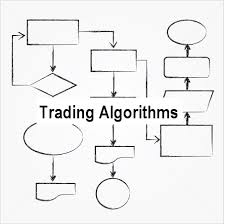Algorithmic Trading Identification – The First Step Of Trading

At this stage, you will need to collect all the data that is relevant to the strategy you have in mind. You will also need to put the strategy to test and make an attempt to put the strategy in practice in a manner that it optimises your gains while keeping the risk factor at a minimum. Algorithmic Trading strategy identification also involves taking into account your capital requirements. This will however be relevant if you intend to run the strategy in question as a trader in the “retail” category. Transaction costs have a bearing on the strategy and thus must be accounted for during its computation.
Though it sounds incredibly complicated, it is rather simple to “find” strategies that are profitable and you can in fact do it by scouring public sources! The sources to keep a watch on are the publication of theoretical trading results by academicians. You can also check out blogs on algorithmic trading and other trade journals. These sources often talk about tried and tested strategies that have been deployed earlier. If you are questioning why people who have taken the trouble to identify these seemingly complex strategies are willing to share their winning formula, the answer to it is simple! The exact results or parameters are never really discussed. What you will find in the public domain are broad parameters of their own formula.
But this does not suggest that they do not work. If you have a primary knowledge of algorithmic trading, you may be successful in creating your own unique strategies with some help from these parameters that have been chalked out before. In fact you could even optimise a mediocre strategy into one that is highly profitable, if you have the proper know how!
Here’s a list of well trusted algorithmic trading sources:
- Seeking Alpha – www.seekingalpha.com
- Elite Trader – www.elitetrader.com
- Nuclear Phynance – www.nuclearphynance.com
- arXiv Finance – arxiv.org/archive/q-fin
- Quantivity – quantivity.wordpress.com
If you look through these sources, you are likely to find that a lot of the strategies can be sectioned in the categories such as mean-reversion and momentum strategy. The former is a strategy that thrives on finding a long-term mean on what is called a “price series”. This may be the spread between two assets that are co-related). In a momentum or trend following strategy one attempts to ride the wave on a market trend. This trend is followed till it reverses.
These are some of the algorithmic trading strategies one will come across at this stage. Once you have identified your strategy, the next step is to back test it.
